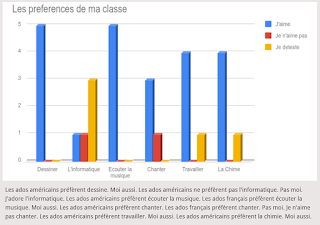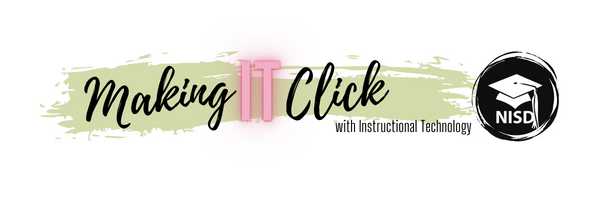If you’re anything like I was as a classroom teacher, you’ve spent many nights drowning in papers to grade. You understand the time spent in coffee shops, trying desperately to get caught up. And yet, if you’re anything like me, there have been times that, after all those hours and lattes, you weren’t satisfied that your students’ grades actually reflected their knowledge and ability. Where was I going wrong?
I assigned and graded vocabulary worksheets each week, but students were still scoring low on their diction in writing. I graded reading quizzes that assessed plot and character knowledge, but in the end some students couldn’t talk about the major themes of a novel. Between what felt like wasted class time and weekends spent grading, it never failed that when it turned out an assignment didn't actually tell me whether or not my students truly “got it”, I was left frustrated.
I understood that traditional assignments and tests work to show if students “know” something, but quickly learned that they fall short as an indicator of whether or not students can actually use that knowledge. Of course there is a time and place for each, but it is important for teachers to challenge their students with performance-based assessments if they want to know that students can apply their knowledge in meaningful ways. Northwest High School’s French teacher, Madame Blanc (Mrs. White), made this shift in her classroom this year, away from traditional tests and towards a performance-based method of assessment -- and it seems to be paying off.
 Each six weeks, Madame Blanc gives her students both creative tasks and opportunities to apply and demonstrate their learning through student-created products that are ultimately shared through their ePortfolio, a personal and digital collection of their growth and learning. As a basic example, she asked her students to create an article for a French magazine that explains an American holiday and custom as a way to assess their application of many language skills they are working on.
Each six weeks, Madame Blanc gives her students both creative tasks and opportunities to apply and demonstrate their learning through student-created products that are ultimately shared through their ePortfolio, a personal and digital collection of their growth and learning. As a basic example, she asked her students to create an article for a French magazine that explains an American holiday and custom as a way to assess their application of many language skills they are working on.French student Elise Reuman recounted one assignment where she and her classmates were asked to create a video that described their partner’s family as a way to demonstrate their ability to use adjectives in French. Using Adobe Spark video, she described her classmate's family. Elise reflected, “...using the vocabulary in a way that applied it to a likely scenario really helped to ingrain the information. Projects like this usually only require the [written] portion of the vocabulary… [but] Mrs.White, went a step further and required a vocal response as well. This really solidified some of the pronunciation and helped me become more comfortable with actually speaking the French language.”
As Elise shared, performance-based tasks engage students in more authentic opportunities to practice real-world skills. It’s important to note that, in a performance-based classroom “teachers do not have to “give up” units of study or favorite activities” (ASCD). According to ASCD, it’s because these “authentic tasks are rooted in curriculum” that “teachers can develop [assignments] based on what already works for them.” It’s ultimately through small changes in how teachers ask students to learn that “assignments become more authentic and more meaningful to students.”
 For example, in another assignment in Madame Blanc's class, students were challenged to learn about multiple perspectives, including the likes and dislikes of French teenagers. They had to go further to compare/contrast these perspectives with those of American Teens. Students interviewed their peers (some opting to collect data through Google Forms), graphed and visualized the data they collected (through Google Sheets), and then wrote of summary of their findings in both French and English, finally sharing their work through their ePortfolio (a website created on Google Sites). Assignments like this require students to be strong in their content knowledge, but more than that, they develop skills outside of French language studies -- skills like the 6 Cs: creativity, communication, collaboration, critical thinking, character education, and citizenship.
For example, in another assignment in Madame Blanc's class, students were challenged to learn about multiple perspectives, including the likes and dislikes of French teenagers. They had to go further to compare/contrast these perspectives with those of American Teens. Students interviewed their peers (some opting to collect data through Google Forms), graphed and visualized the data they collected (through Google Sheets), and then wrote of summary of their findings in both French and English, finally sharing their work through their ePortfolio (a website created on Google Sites). Assignments like this require students to be strong in their content knowledge, but more than that, they develop skills outside of French language studies -- skills like the 6 Cs: creativity, communication, collaboration, critical thinking, character education, and citizenship.Watching performance-based assessments work for Madame Blanc has reiterated what hindsight and experience taught me: It was when I focused on creating rigorous and authentic learning tasks for my students, rather than assigning simple checks-for-understanding for grades, that I best served them. It is through rigorous, performance-based learning tasks that we can empower our students to think critically and create, and that we can most accurately and authentically assess their learning.


No comments:
Post a Comment
Note: Only a member of this blog may post a comment.